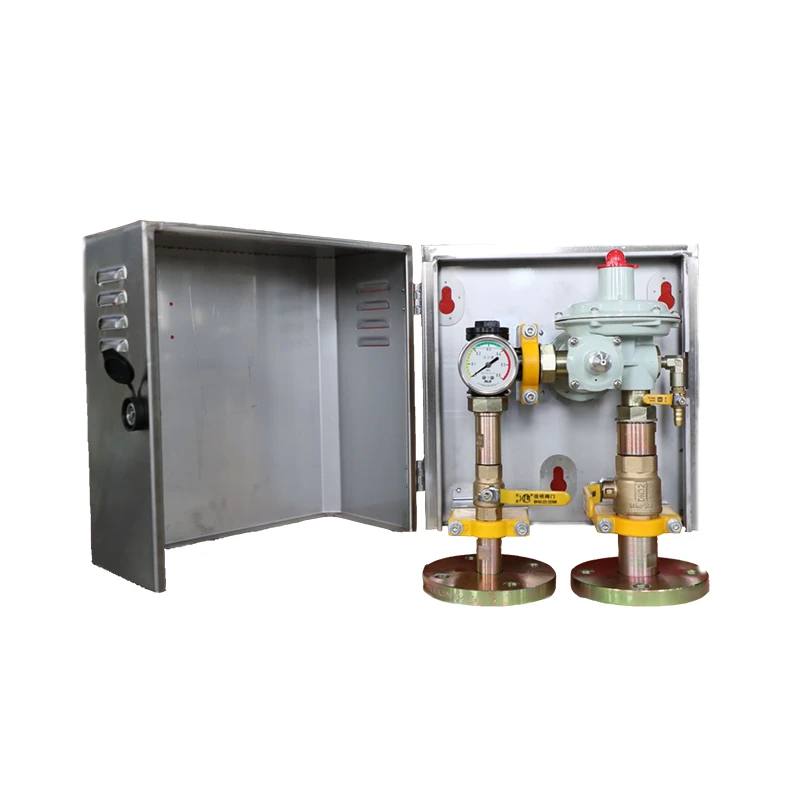
Dec . 03, 2024 14:47
Back to list
Gas Filtration and Separation Solutions for Efficient Process Management
Gas Filter Separator Essential Technology in Oil and Gas Production
In the oil and gas industry, the separation of gas, liquid, and solid particles is critical for process efficiency and product quality. One technology that has proven indispensable in achieving this separation is the gas filter separator. This sophisticated piece of equipment plays a pivotal role in ensuring the purity of gas streams, promoting operational efficiency, and mitigating the environmental impact of hydrocarbon production.
A gas filter separator primarily serves to separate gas from liquids and solids present in the production stream. This is particularly important in upstream operations, where raw gas is often mixed with water, hydrocarbons, sand, and other contaminants that can adversely affect downstream processing equipment. By utilizing a gas filter separator, producers can enhance the quality of the gas being captured, ensuring that it meets the stringent specifications required for further processing or direct sales.
How Gas Filter Separators Work
The design of a gas filter separator typically consists of three main components a separator vessel, a filtering mechanism, and a re-entrainment or coalescing element. The process begins when the production stream enters the separator vessel. Inside, the flow is slowed down, allowing the heavier liquid components to settle due to gravity. This initial separation is crucial as it reduces the load on the filtering mechanism.
Once the liquid components have settled, the gas stream continues upward, passing through a filtering element designed to capture any remaining solids or liquid droplets. This filtering mechanism can take different forms, including mesh screens or more advanced membrane filters, depending on the operational requirements. The filtered gas is then sent to processing units or directly to sales, while the collected liquids and solids are discharged for further treatment or disposal.
Benefits of Gas Filter Separators
1. Enhanced Gas Quality One of the primary benefits of utilizing gas filter separators is the significant improvement in gas quality. By removing contaminants, operators can ensure that the gas is free of impurities, which is vital for maintaining the efficiency of compressors and other downstream equipment.
gas filter separator

2. Operational Efficiency By efficiently separating various components within the production stream, gas filter separators help maintain the operational efficiency of the overall system. This is crucial in reducing the risk of equipment failures that can lead to costly downtime.
3. Environmental Compliance With growing regulations on emissions and waste management, gas filter separators help operators comply with environmental standards. By ensuring that only clean gas enters the pipeline network, companies can minimize their environmental footprint and meet regulatory requirements.
4. Cost-Effectiveness While the initial investment in gas filter separator technology might be significant, the long-term savings generated through improved gas quality and reduced maintenance costs make it a cost-effective solution. Operators can save on expenses related to equipment repairs, product losses, and environmental remediation.
5. Versatility Gas filter separators can be utilized in various applications beyond traditional oil and gas extraction, including biogas production, natural gas processing, and other industrial processes where gas quality is a concern. Their versatility makes them adaptable to different operational settings and requirements.
Future Trends and Developments
As the oil and gas industry continues to evolve, so does the technology surrounding gas filter separators. The push for cleaner energy and increased efficiency is driving innovations that integrate advanced materials, automation, and real-time monitoring systems. These advancements aim to improve the performance and reliability of gas filter separators, enabling operators to respond swiftly to changing conditions in production streams.
Moreover, the integration of IoT (Internet of Things) in gas filter separator technology is paving the way for predictive maintenance, allowing operators to anticipate issues before they occur. This not only enhances efficiency but also contributes to overall safety in operations.
In conclusion, gas filter separators represent a critical technology in the modern oil and gas landscape. By effectively separating gas from liquid and solid contaminants, they not only enhance the quality of gas production but also support operational efficiency and environmental compliance. As technology continues to advance, the role of gas filter separators will become even more significant in the quest for sustainable and efficient hydrocarbon production.
Next:
Latest news
-
Safety Valve Spring-Loaded Design Overpressure ProtectionNewsJul.25,2025
-
Precision Voltage Regulator AC5 Accuracy Grade PerformanceNewsJul.25,2025
-
Natural Gas Pressure Regulating Skid Industrial Pipeline ApplicationsNewsJul.25,2025
-
Natural Gas Filter Stainless Steel Mesh Element DesignNewsJul.25,2025
-
Gas Pressure Regulator Valve Direct-Acting Spring-Loaded DesignNewsJul.25,2025
-
Decompression Equipment Multi-Stage Heat Exchange System DesignNewsJul.25,2025

